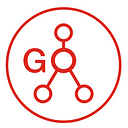IFRC GO is the IFRC’s emergency operations platform. Shining a spotlight on our unique global network’s response to disasters and crises across the planet, GO also aims to help us make sense and transform data into insights. In this briefing we presented new and forthcoming ways in which GO provides the platform for our network to prepare, respond and learn from emergencies, at all scales and in all locations.
This Q3 2024 briefing is the latest in our series of quarterly sessions organised to inform our users of new and upcoming features and resources available through GO. Read on for a summary, the slides and an edited recording from the two sessions held.
Learning from our global network
We have knowledge of the localised solutions implemented by our National Societies because they document their experiences, providing real-world examples of what works in the field. In Colombia, as part of their contingency planning, an alternative route was identified during the planning of the operation to avoid delays. In Indonesia and Sri Lanka, the National Society adapted by utilising alternative means of transportation like boats and ferries, to access flood-affected communities. And in Bangladesh, engagement with partners revealed alternative modalities that ensured timely aid delivery.
These solutions are not just isolated successes — they are shared hard-earned learnings that we can build upon. By capturing and analysing these insights through the IFRC’s Operational Learning Initiative, implementing generative AI, we turn them into usable, actionable insights that can have significant positive impact in the life of those affected by disasters.
We explained the process of gathering, categorising, summarising and prioritising our network’s data through the Operational Learning service. We also explained the next steps we plan to take to integrate these insights into our routine practices and processes.
To learn more about this project, please find the original dashboard, a detailed technical blog post, more info and how-to in the user guide on the go wiki, and the open-source code in those links.
Enabling Anticipatory Action on GO
We described two important steps we are taking to support the scale up of anticipatory action in the IFRC. Firstly, by digitising the process of accessing the anticipatory pillar of the DREF, we aim to provide the means to act early. Secondly, by operationalising the Montandon Global Crisis Data Bank, we will provide a unified source of early warning information needed to trigger action.
In 2022, we integrated the response pillar of the DREF. Since then, we’ve continued to learn from the implementation and find solutions for users and workflows. Building on this, we plan to digitise the anticipatory pillar of the DREF. The tool will therefore benefit from a local to global approach — smoothing the process of channeling resources to enable National Society action on the ground while simultaneously enabling scale and cross-network learning to improve our practice and common services offered.
Integrating the intention to develop an EAP, monitoring and activation processes GO will provide greater awareness, transparency and oversight of the anticipatory action the IFRC is committed to, and implementing, across the network. There are also many opportunities to ensure that the digitised process benefits from existing data, analyses and integrations on GO. We shared the prototype wireframes and described the knowns and known unknowns, to be reviewed during a consultation process in Q1 2025.
Next, we explained the progress but also challenges faced by integrating early warning alerts from different providers. While useful to compare and triangulate, the different estimates for affected population by a single storm approaching the Philippines was used to demonstrate the challenge of identifying a single figure for planning and initiating action.
We explained how the Montandon (more background here) aims to tackle this challenge. First, by pairing event records we will know that the different providers are referring to the same hazard. By applying this retrospectively to our entire record of 1 million + event records, we will build up a greater evidence base for analysis and learning. Next, by merging the events, aim to provide a single reference point, with key information our users have asked for, including return period (indicating that the event is a X in Y year event) and similar disasters in our historic crisis data bank. We then aim to provide this as an email notification service for our users.
GO Study 2024 — insights from our users
Every two years we launch a detailed survey (more background here) which is aimed at ‘taking the temperature’ of our users — we ask them to rate the platform overall as well as provide more detailed feedback on specific features or functionality.
We described the process of testing certain hypotheses through a survey, some detailed interviews, as well as some exploratory user-testing of different features and scenarios. Some key learnings from the study are presented below:
We will be sharing the results with our GO Advisory Groups (Membership and Secretariat), before sharing our action plan and full report on the GO blog here. include:
Finally, we provided a brief overview of the GO workplan, which provides timeframes for the deliverables we have committed to for the platform in the next 18 months. Please get in touch if you are keen to contribute or collaborate on any of these features.
90% of GO development has been funded directly by our National Societies, and we depend on their continued support to deliver on these plans. If you would like to hear more about our work, or offer financial or material support, please contact im@ifrc.org.
To honour the Operational Learning release, we listened to ‘Lessons’ by The Cinematic Orchestra before and celebrated by listening to ‘Mundo Paralelo’ by Monsieur Paralelo after the briefing.
